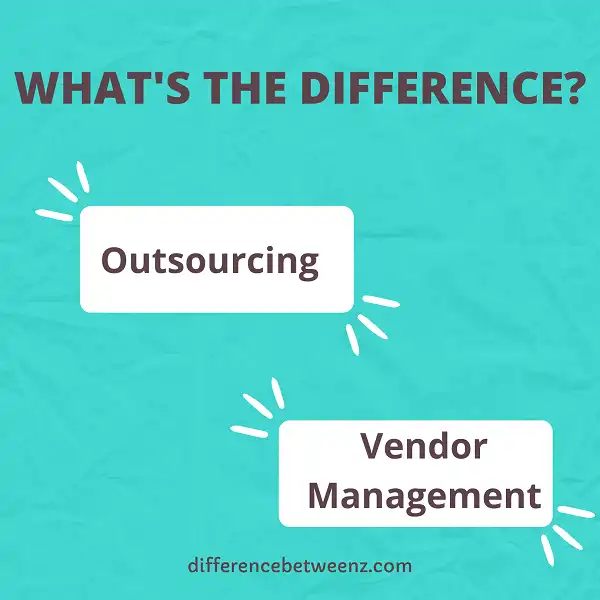Outsourcing and Vendor Management are two different but important aspects of the business. Outsourcing is the process of hiring a third-party company to do specific tasks or functions that your company may not have the resources or expertise to do in-house. Vendor management, on the other hand, is the process of managing and overseeing your vendor relationships.
What is Outsourcing?
- Outsourcing is the process of contracting with another company or individual to provide goods or services that are typically performed by in-house staff. The term “outsourcing” often refers to offshoring or the practice of contracting with a company in another country to provide goods or services. However, it can also refer to the practice of contracting with a local company or individual.
- Outsourcing can be beneficial for businesses because it allows them to focus on their core competencies while still being able to access needed skills and resources.
- It can also help businesses to reduce costs. However, there are also some risks associated with outsourcing, such as a loss of control over quality and delivery, and the potential for political and economic instability in the host country.
What is Vendor Management?
Vendor management is the process of assessing supplier performance, defining and setting expectations for quality and delivery, and maintaining supplier performance records. It also includes defining roles and responsibilities, communication plans, and escalation procedures. An effective vendor management program can help to improve supplier performance, reduce costs, and improve product quality. In addition, it can help to ensure that suppliers are meeting customer expectations and delivering on their commitments. A well-run vendor management program can be a critical success factor in any organization.
Difference between Outsourcing and Vendor Management
Outsourcing refers to the practice of contracting with another company to provide goods or services that are typically performed by in-house staff. This can be done on a temporary or permanent basis, and it can be limited to specific tasks or projects.
- The key advantage of outsourcing is that it can help you save on costs by accessing specialized skills and expertise that you may not have in-house. Vendor management, on the other hand, refers to the process of overseeing and coordinating all the different vendors that provide goods or services to your company.
- This includes everything from suppliers to contractors. The goal of vendor management is to ensure that vendors are meeting your company’s needs in a timely and efficient manner.
Vendor management can be a complex task, but it is essential for maintaining good relationships with your vendors and ensuring that your business runs smoothly.
Conclusion
Outsourcing is the process of hiring a third party to do something that could be done in-house. Vendor management, on the other hand, is the proactive and ongoing oversight of an organization’s external suppliers with the goal of optimizing performance and mitigating risk. Outsourcing can often lead to better results for companies because it allows them to focus on their core competencies. Vendor management should include things like contract reviews, quality assurance audits, and supplier performance evaluations.


